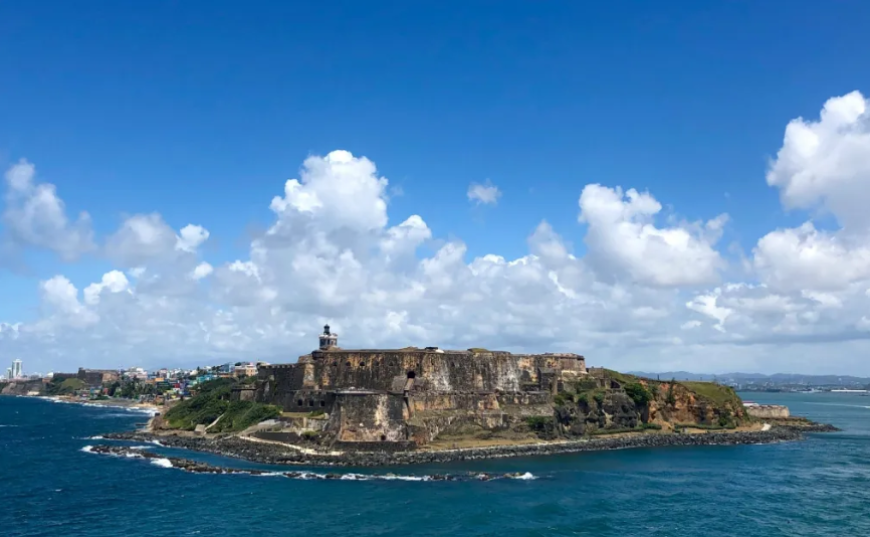
Photo by Stephanie Klepacki on Unsplash
It is nothing new for a member of Congress to travel to Puerto Rico. In the early 20th century, the Island’s business and political elites conferred the title of “Cangrimanes” on their visitors, a Spanish slang term describing a person of influence.
In October, two of New York’s “Cangrimanes” endorsed the Puerto Rican Independence Party’s candidates for governor in San Juan. “Today, with our faces to the sun, we give our endorsements to Juan Dalmau for governor,” proclaimed Congresswomen Nydia Velázquez (D-NY-7) and Alexandra Ocasio Cortez (D-NY-14) ahead of the November 5 elections, according to The San Juan Star.
The hypocritical thing about this endorsement is that it was conferred in a U.S. territory with zero electoral power in Congress by two elected officials from a state on behalf of candidates advocating for political independence for Puerto Rico, a status option that has been consistently rejected by that Island’s electorate.
“That these two ladies would advise the American citizens of Puerto Rico to vote for candidates representing an ideology that would distance us from enjoying the same opportunities, equal rights and prerogatives that they are enjoying as federal legislators from the State of New York is mind blogging and unbelievable,” declared statehood advocate Orlando Parga in El Nuevo Día.
As an unincorporated territory, the 3.1 million U.S. citizens in Puerto Rico live under a system of legally sanctioned political apartheid. They cannot vote for president, have no voting power in the U.S. House or U.S. Senate and must abide by all federal laws.
This unequal treatment extends to how the feds allocate taxpayer money to Medicare, Medicaid and Nutrition Assistance programs on the Island. Congress can and does treat Puerto Rico worse than it does the residents of a state in ALL of these federal social safety net programs, according to the Brookings Institute’s Center of Policy and Budget Priorities.
The U.S. Supreme Court sanctioned this congressional bigotry in Harris v. Rosario (1980) when it ruled that Congress can treat Puerto Rico differently “as long as there is a rational basis for doing so.”
Velázquez, AOC and their constituents are shielded from this Jim Crow era discriminatory conduct because they live in a state protected by the equal protection clause of the Constitution.
Velázquez herself came of age as a young woman in Puerto Rico as a member of the Popular Democratic Party of Puerto Rico (PPD). The PPD created, sustains and protects the unequal, undemocratic and discriminatory political status of U.S. territory that is the cause of many of the Island’s fiscal woes.
Velázquez rose to power as an elected official in New York under the sponsorship of PPD Gov. Rafael Hernandez Colon in San Juan. Colon laid the groundwork for her political career when he appointed her the director of his government of Puerto Rico office in NYC in 1986. It was from this perch that she won election to a congressional seat representing Brooklyn and Queens in 1992.
Orlando Parga called Ocasio Cortez’s “meddling” in Puerto Rican elections a real-life essay reflecting ignorance. “The young congresswoman from The Bronx justifies her support for candidates who favor political independence for Puerto Rico by citing a hard-core socialist philosophy that has no place or roots in the thinking of the people of Puerto Rico,” Parga wrote in El Nuevo Dia. The San Juan Star called the actions of elected officials residing in states while urging independence for Puerto Rico a paradox.
Roberto Guzman of the University of Puerto Rico castigated these congresswomen a bit more harshly in an essay in The San Juan Star. “It seems somewhat hypocritical for someone who is living the American dream to the extent that you are to deny the same dream to millions of Puerto Ricans who call this Island home,” Guzman wrote. “Please stop undermining our struggle for equality. You are not our elected representatives.”
Gene Roman lives in the Bronx and works as a freelance reporter wherever there is a good story.
Editor’s Note: Norwood News reached out to the Offices of both Congresswoman Alexandria Ocasio-Cortez and Congresswoman Nydia Velázquez for comment on this op-ed. We did not receive an immediate response.
The San Juan Daily Star have since reported that a group of Puerto Rican statehood supporters, including Gregorio Igartúa, José Garriga Picó, Héctor Ramos, José M. Saldaña, Ivette Chardón, Ilka Ríos, Philip Hopgood and Bob Segarra, have filed an ethics complaint against Velázquez and Ocasio-Cortez.
The complaint, filed with the Office of Congressional Ethics, was in response to Velázquez and Ocasio-Cortez supporting the “Alliance” between the Puerto Rican Independence Party (PIP by its acronym in Spanish) and the Citizen Victory Movement (MVC by its initials in Spanish) during the November 2024 election.




